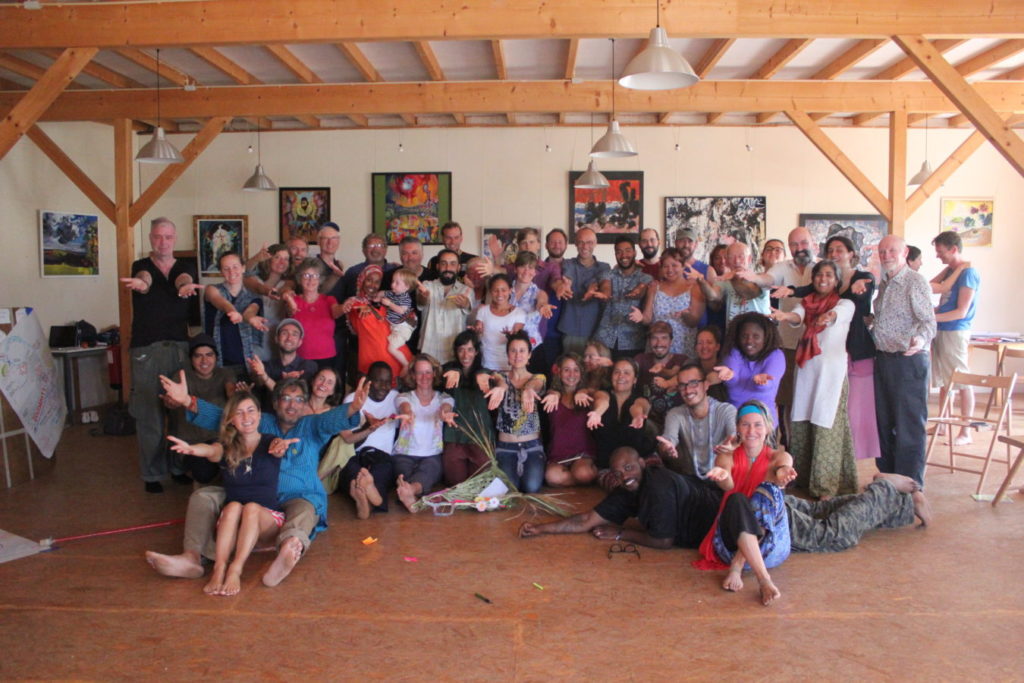“It is difficult to imagine a future that is humane, decent and sustainable without marked changes in the substance and process of education at all levels, beginning with the University”
(David Orr, author of Earth in Mind) Tweet
our story
There is an emerging knowledge movement that is slowly building all over the world, though it often goes unnoticed by the media and most formal education systems. A part of this movement can be described as a network of ‘eco-versities’—people, organizations and communities who are reclaiming knowledge systems and a cultural imaginary to restore and re-envision learning processes that are meaningful and relevant to the challenges of our times.
Although diverse in its origins, these different pedagogical initiatives both critique the existing education systems, and cultivate new practices to regenerate ecological, social and cultural ecosystems, whilst also reflecting on the meanings of ‘home’ as locality and as an ‘economy’: hence the name ‘eco-versities’.
To further the collaborations and intensify the relationships and the mutual learning among this wider network, the Eco-versities plenary gathering was organized by practitioners engaged in creating learning sites, both outside and inside the conventional academia.
The crisis we are in indicates that we are brushing up against the limits of human reason. It is time we re-activate our diverse perceptions, senses, intuitions and entanglement with the non-human world.
In August 2015 we had our first week-long gathering at the Tamera Eco-village in Southern Portugal: 55 people came from 23 countries to share wisdom, experiences, insights, burning questions and challenges, and to share how transformative learning is being imagined and enacted within each locality and initiative. (see Are Eco-versities the Future for Higher Education? Open Democracy April 2016).
The gathering included groups focused on gift cultures such as Swaraj University in India; the regeneration of the commons such as Unitierra in Mexico and the USA; indigenous worldviews and ways of knowing like the Kainai Studies program at Red Crow Community College in Canada and the Aloha Pedagogy in Hawai’I; organizations experimenting with self-designed agro-ecological learning such as Gaia University (in the USA and worldwide) and Kufunda Learning Village in Zimbabwe; many experimental and autonomous initiatives organized around political, social and ecological struggle using different tools and methodologies, spanning from social justice approach, artistic and linguistic one, community oriented or research-based.
The second Eco-versities gathering took place at EARTH University in Costa Rica in February 2017, deepening the exchanges and expanding the Alliance, while the third meeting will take place in India, at Swaraj University in October 2018.
Deep learning, rich exchanges, friendships, and collaborations have continued developing among the participants of each gathering. In between gatherings, Eco-versities has also nurtured mutual learning by supporting research visits between places, projects and individuals in the Alliance; the network has also organized regional gatherings; events, and publications.
Through these different encounters, Eco-versities has grown into a coalition of kindred folk committed to building solidarity, producing collective inquiries and creating collective and individual actions to radically re-imagine our models of education.

The Ecoversities Alliance is not a formal organization, and its the activities unfold through a process of trust and mutuality, a growing web of relationships that have been nurtured through our gatherings and beyond.


